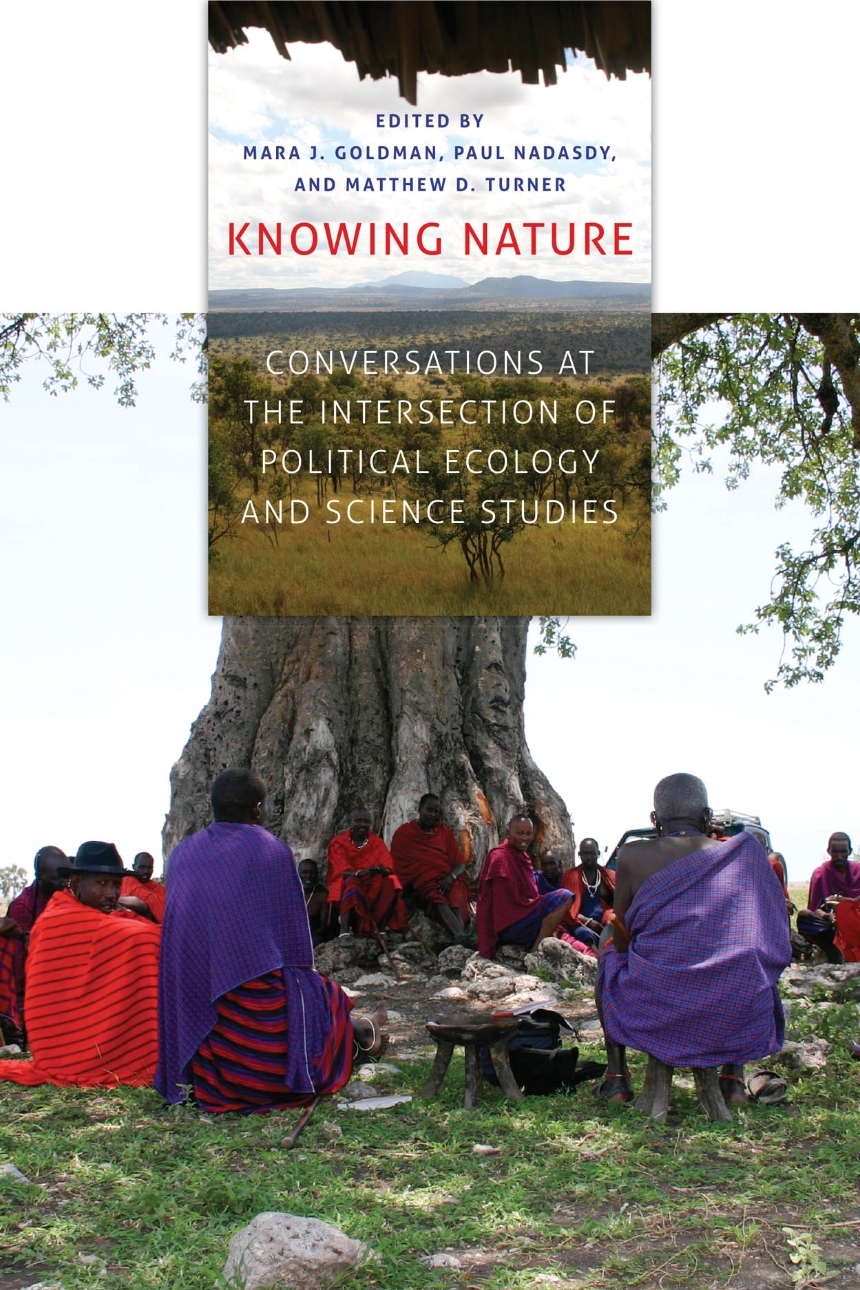Knowing Nature
Conversations at the Intersection of Political Ecology and Science Studies
Knowing Nature
Conversations at the Intersection of Political Ecology and Science Studies
Political ecology and science studies have found fertile meeting ground in environmental studies. While the two distinct areas of inquiry approach the environment from different perspectives—one focusing on the politics of resource access and the other on the construction and perception of knowledge—their work is actually more closely aligned now than ever before.
Knowing Nature brings together political ecologists and science studies scholars to showcase the key points of encounter between the two fields and how this intellectual mingling creates a lively and more robust ecological framework for the study of environmental politics. The contributors all actively work at the interface between these two fields, and here they use empirical material to explore questions of theoretical and practical import for understanding the politics that surround nature-society relations, from wildlife management in the Yukon to soil fertility in Kenya. In addition, they examine how various environmental knowledge claims are generated, packaged, promoted, and accepted (or rejected) by the different actors involved in specific cases of environmental management, conservation, and development. Finally, they ask what is at stake in the struggles surrounding environmental knowledge, how such struggles shape conceptions of the environment, and whose interests are served in the process.
376 pages | 22 halftones, 8 line drawings, 6 tables | 6 x 9 | © 2011
Biological Sciences: Ecology
Geography: Cultural and Historical Geography
Sociology: Demography and Human Ecology
Reviews
Table of Contents
Mara J. Goldman and Matthew D. Turner
PRODUCTION OF ENVIRONMENTAL KNOWLEDGE: SCIENTISTS, COMPLEX NATURES, AND THE QUESTION OF AGENCY
Introduction
Matthew D. Turner
1 Politicizing Environmental Explanations: What Can Political Ecology Learn from Sociology and Philosophy of Science?
Tim Forsyth
2 Debating the Science of Using Marine Turtles: Boundary Work among Species Experts
Lisa M. Campbell
3 Technobiological Imaginaries: How Do Systems Biologists Know Nature?
Joan H. Fujimura
4 Agency, Structuredness, and the Production of Knowledge within Intersecting Processes
Peter J. Taylor
5 Fermentation, Rot, and Other Human-Microbial Performances
Mrill Ingram
6 Ferricrete, Forests, and Temporal Scale in the Production of Colonial Science in Africa
Chris Duvall
APPLYING ENVIRONMENTAL KNOWLEDGE: THE POLITICS OF CONSTRUCTING SOCIETY/NATURE
Introduction
Paul Nadasdy
7 “We Don’t Harvest Animals; We Kill Them”: Agricultural Metaphors and the Politics of Wildlife Management in the Yukon
Paul Nadasdy
8 Political Violence and Scientific Forestry: Emergencies, Insurgencies, and Counterinsurgencies in Southeast Asia
Peter Vandergeest and Nancy Lee Peluso
9 Spatial-Geographic Models of Water Scarcity and Supply in Irrigation Engineering and Management: Bolivia, 1952–2009
Karl Zimmerer
10 The Politics of Connectivity across Human-Occupied Landscapes: A Look at Corridors near Nairobi National Park, Kenya
Mara J. Goldman
Part 3
CIRCULATION OF ENVIRONMENTAL KNOWLEDGE: NETWORKS, EXPERTISE, AND SCIENCE IN PRACTICE
Introduction
Mara J. Goldman
11 Rooted Networks, Webs of Relation, and the Power of Situated Science: Bringing the Models Back Down to Earth in Zambrana
Dianne Rocheleau
12 Circulating Science, Incompletely Regulating Commodities: Governing from a Distance in Transnational Agro-food Networks
Ryan E. Galt
13 Reclaiming the Technological Imagination: Water, Power, and Place in India
Roopali Phadke
14 Circulating Knowledge, Constructing Expertise
Rebecca Lave
15 Experiments as “Performances”: Interpreting Farmers’ Soil Fertility Management Practices in Western Kenya
Joshua J. Ramisch
Conclusion
Matthew D. Turner
References
List of Contributors
Index
